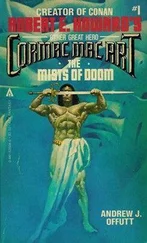Near the treeline I find fresh fox prints and realize it has doubled back on me, and since I am here now, it has probably doubled back again. The fox is watching me watch my thoughts. None of it matters — not gender, hope, or even health. It’s all over anyhow, decided nine months back, moments after the final cellular brawl of fertilization. The embryo is sexless until the fourth month, when genitals begin to grow. Roman women who failed to produce a male heir were put to death, but we now understand that the flailing sperm decides the gender. A son will carry the family name; a daughter carries the child.
Rabbit tracks lead to a patch of scattered leaves the color of pennies found in gravel. The immense hind legs of a rabbit prevents it from walking backwards. A woodcock can see three hundred sixty degrees without turning its head, but we are the only species capable of hindsight. Rita says she cannot remember when she wasn’t pregnant. She no longer recalls her sleeping dreams.
An itinerant coyote treed a coon yesterday, then continued roaming downriver, rare for Iowa. Wind has cleared the tracks away. I envy its reckless lifestyle — the solitary animal seeking fun like the romanticized single man, perpetual bachelor, the lone-wolf cowboy of books and film. The beauty of the coyote is its inability to ponder the past. It is happy in a pack or on its own, honoring the moon, the cycle of women. Very soon my freedom will end. No one is perfect but fathers are expected to be.
I wedge into a tight gap amid three maples that splay the sky. Seedpods lie between my feet. The sun won’t melt the snow till spring. In the fifth century, Pindar wrote that man is but a dream of a shadow. Rita has long dreamed of a child. My father dreams of an heir. In the shadow world of Rita’s womb, the fetus dreams of more space. I think of the future, of my adult child smuggling me from the hospital to die in the woods. Trees dream about the death of an ax. The snowflake dreams of finding its twin.
Walking home is work, trudging into the wind. My feet are slowed by old snow beneath the scuttling powder of today. My mind is the circling fox, sure of instinct, heading for its den. In the house I tell Rita of my thoughts, that nothing matters. She disagrees. “Everything matters now,” she says. “More than ever.”
A week passed thumbing north, my sextant aimed at New England, as determined as Columbus. I stormed the region, convinced of discovering a higher level of civilization absent from the rest of the country. Instead, I found a room in Salem, Massachusetts, with a renegade Pole named Shadrack. Every door in our apartment had been robbed of its knob. Nothing locked. Our single common room was a large windowless kitchen full of dirty dishes. Stray trash surrounded the garbage can like drifted snow.
The first night we met, Shadrack confided that a single yoni hair was stronger than a team of oxen. His life was shimmed at all the joints and he’d taken to shimming the shims. During winter, he slept in a lime-green tent pitched in the kitchen. In exchange for acting as a security guard, Shadrack had a painting studio in an abandoned chalk factory by the river. Chalk dust covered him like a corpse risen from the lime. He was the perfect friend for me — so starved for company that he talked to mice in his studio.
I had quit painting to write, and he was a poet who now painted. We were inverted Siamese twins, connected at the intellect. He’d never completed a painting, which gave him an edge over me since I had yet to begin a play. When the time came, I’d write a single script that would not only eliminate the need for more but nullify the prevailing theater. One play would mortar my manhood into a wall.
My adherence to the journal slid into a strange realm where I viewed my immediate interactions as a form of living diary. If riding a bicycle through a snowstorm sounded like good material for the journal, I borrowed a bike in a blizzard. The actual ride didn’t matter. What I did was try to observe myself as carefully as possible, while simultaneously imagining myself writing everything down later
Shadrack’s current project consisted of sculpture assembled with objects he stole from his friends, When something turned up missing, I merely had to visit his studio and surreptitiously steal it back. If he caught me, he’d complain that I was violating the sanctity of his work. A prolonged argument ensued until I offered to trade him another piece of my property. His attitude toward money was slightly more evolved, in that he never stole it. If I had cash, Shadrack demanded some. I hesitated before realizing that not only would he eventually pay it back but the practice granted me license to take his money as well. We once lived for two months on the same ten bucks passed to and fro. Knowing he either owed me money or would lend me some took the edge off hunger and despair..
The circus had given me a taste for working outdoors, and I quickly ran through three jobs — at a car wash, as a landscaper, and selling flowers from a pushcart. I got to know Salem, founded in 1626, now decayed and gift-wrapped like a mummy’s womb. After the failure of its harbor and mills, the town relied on its shameful history for tourist money. The high school ball teams were called the Witches. A church had recently been converted to a witch museum. Visitors poked their heads through loose-fitting stocks for a photograph to show the relatives.
Salem’s original settlers were so molded by Calvinism that they regarded the natives as either devils or the lost tribe of Israel. I seemed to fall into the first category. As in New York, my accent betrayed me, I had no local references, and my job résumé didn’t impress anyone. I applied for jobs at which I was grossly unqualified, simply to create theater for my subsequent journal entry. When the cash flow between Shadrack and me became lopsided, I concocted a false history and tried for my first professional job. I bought a white shirt from a thrift shop and used black spray paint to make a pair of brown shoes acceptable for an interview. A bar/restaurant hired me as a waiter.
Between art projects Shadrack chased women and read science books, considering himself a lay physicist. My ineptitude with women perplexed him, a phenomenon he viewed with the same curiosity he had for quantum mechanics. As an experiment, he introduced me to private school women who spoke with immobile lips, already worried about lining their future faces with too much expression. Their habitual lockjaw reminded me of a boy back home who’d been bitten by a rabid dog. The kid’s father killed the dog, cut off its head, and mailed it to Frankfort for analysis of the brain. Over the course of a season, the boy received a hundred injections in the belly as cure. I often wondered what the scientists would find in a sample dipped from the windblown cortex of those coastal women.
Shadrack called them trout and regarded their seduction as sport. He appointed himself my fishing tutor, steering me through faceless singles bars murky with cocaine. He deeply envied the blue whale, possessor of a nine-foot lingam it can harden at will. Though I was a lousy pupil, Shadrack never tired of lecturing me. Fishing was easy physics, according to him.
“You must maximize your options with a matrix of lines,” he said. “Trust the bait and forget about subject matter. Remember Newton’s laws of motion. You must behave as a particle wave. Stay away from sandbars, red giants, and octopi. Don’t be afraid to let the trout wander. And remember, Chris, never ever yank your rod.”
Five nights a week we trawled the many neighborhood streams, hauling our lines at closing time. Mine were always empty. My efforts at picking up women were absurd at best — I could never get past the notion of what I was up to, and assumed that the women knew too. The whole courtship dance seemed archaic, silly, and expensive.
Читать дальше












